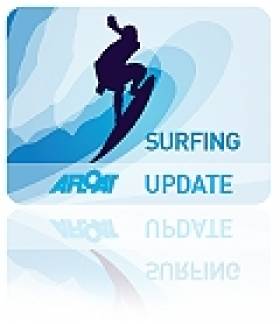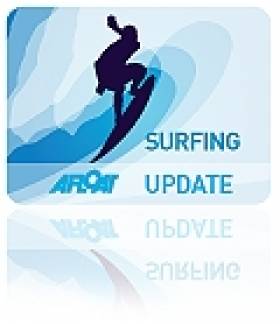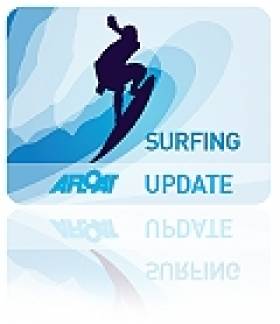Displaying items by tag: autism
Funding Gives A Boost To NI's First Autism Surf Club
#Surfing - A Portrush surf school will continue its links with a programme encouraging social inclusion for people with autism thanks to a funding award from Sport Northern Ireland.
As the Coleraine Times reports, the £3,750 (€4,536) award goes to Outdoor Recreation Northern Ireland, whose partnership with Autism Initiatives NI led the latter to establish ties with the Alive Surf School, recently voted 'Best Family Activity Provider' in the OutdoorNI Awards.
That connection resulted in the North's first surfing summer club specifically for people on the autism spectrum, coming after the similar Surf2heal programme in the Republic that uses surfing as powerful therapy for autistic children.
And the new NI programme is set to continue this summer thanks to the latest funding, which has allowed for the purchase of two custom-built tandem surfboards.
The Coleraine Times has more on the story HERE.
Surfing Is Powerful Therapy For Autistic Children
#Surfing - The therapeutic power of the waves is being used by an Irish network of surfing camps to help children with autism connect with their families and each other.
Afloat.ie previously reported on the Surf2heal programme in Tramore - which pairs autistic children with volunteers to help them have fun with the surfing experience - two years ago, when it was already going from strength to strength.
Now this month, Claire O'Sullivan writes in the Irish Examiner about the latest group of kids to enjoy the surf at Inchydoney in West Cork, one of a network of beaches that includes Garrettstown near Kinsale, Banna in Kerry, Fanore in Clare and Strandhill in Sligo.
And the experience has had some dramatic effects on the children, as one mother testifies.
“In the past few weeks, I’ve seen a kid, whose mum doesn’t like the water, race out of the water to hug her mum before running back in," says Nollaig Hayes, mum of a 10-year-old autistic boy. "It was just this big spontaneous hug from a little girl who had never spontaneously shown affection like that before."
The Irish Examiner has more on the story HERE.
Surf2heal a Success in Tramore
This year's Surf2heal programme in Tramore has been hailed as a huge success, Waterford Today reports.
The annual nationwide surfing camp for children with autism pairs each child with four volunteers to help them have fun with the surf experience, with the aim of building their confidence, balance, co-ordination and communication skills.
In Tramore, Freedom Surf School provided its facilities and equipment free of charge to both the volunteers and children.
"Each year the camp keeps getting bigger and bigger," said Pam Butler, Surf2heal co-ordinator in Tramore. "But without the invaluable volunteers we couldn't make it happen."































































